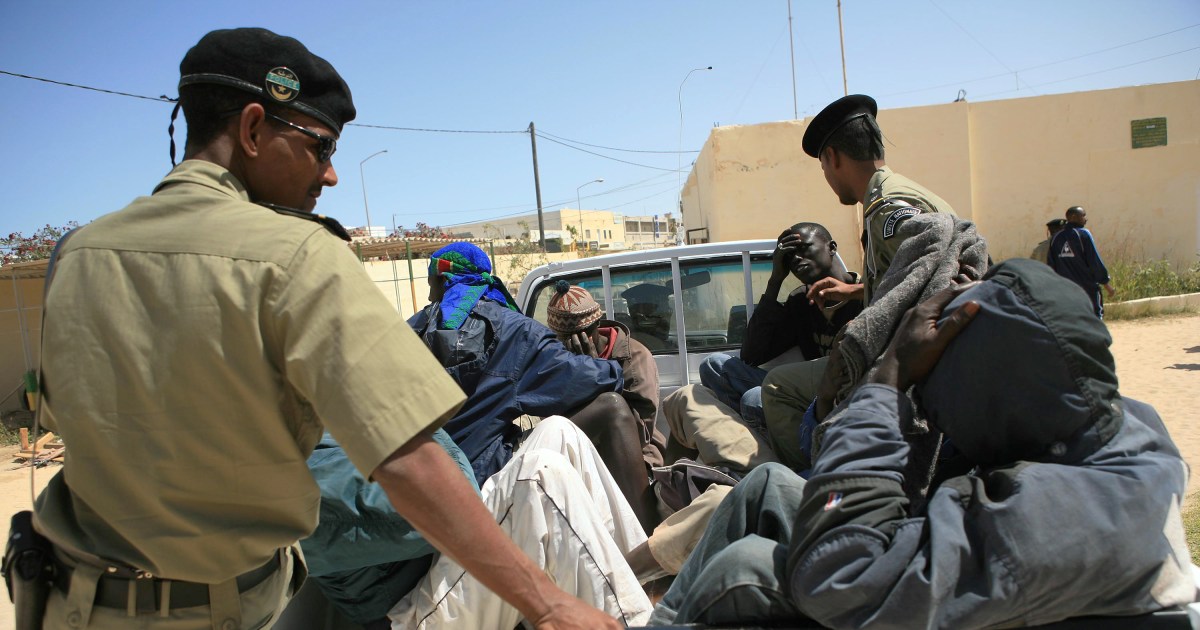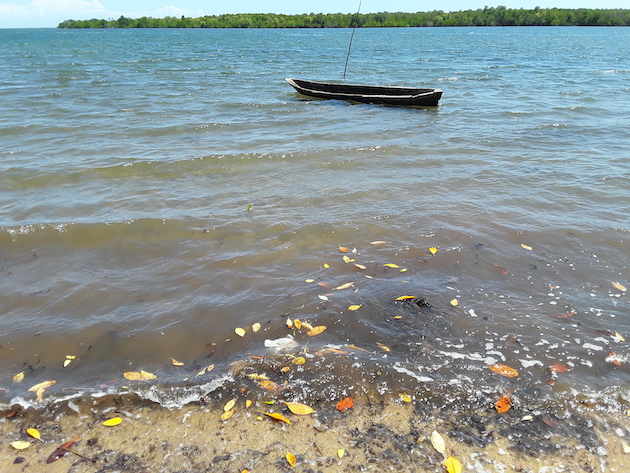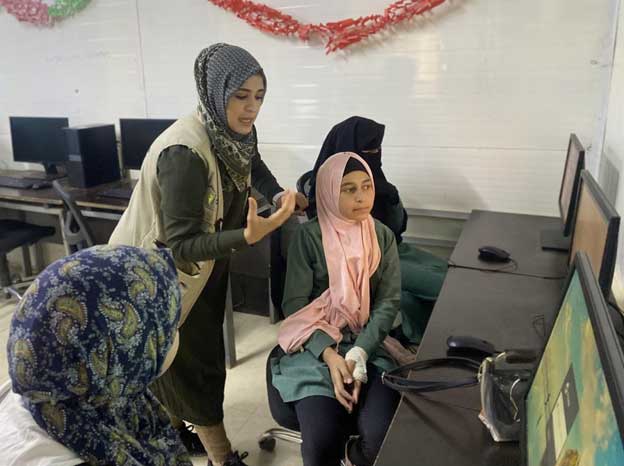The EU-Mauritania migration deal is destined to fail | Opinions
On March 7, the European Union and Mauritania inked a 210-million-euro ($227m) migration deal. The agreement was spearheaded by the EU and lobbied for by the Spanish government, which is worried about an uptick in undocumented migration to the Canary Islands. In January, more than 7,000 arrivals were recorded on the islands.
The migration deal aims to decrease these arrivals by supporting the Mauritanian border and security forces to combat people smuggling and human trafficking and bolstering Mauritanian border management and surveillance capacities. The deal also promises funds for job creation in the country, strengthening the asylum system and legal migration schemes.
But a glance at the history of the EU’s “border externalisation” policies suggests this deal has little chance of meeting its stated objective. Worse still, the unprecedented public backlash it has generated in Mauritania threatens to destabilise the country.
EU efforts to stem migration from Mauritania began in 2006 when nearly 32,000 people arrived on the Canary Islands from West African shores. These sea arrivals followed a bloody crackdown on migrants at Spain’s North African enclaves of Ceuta and Melilla in 2005 and a consequent southward reorientation of migratory movement.
The response involved aerial and maritime surveillance operations carried out by Spain with the support of Frontex, the European Border and Coast Guard Agency, and the deployment of Spain’s Civil Guard in the northern Mauritanian port city of Nouadhibou. The police force was tasked with patrolling the city and training its Mauritanian counterparts. To process and deport those detained in the Canary Islands or intercepted at sea, an old school in the city was converted into a detention centre.
These efforts resulted in a dramatic increase in deportations of foreign nationals from Mauritanian territory and a temporary lull in sea arrivals in the Canary Islands, allowing Spain to laud the operation as a success.
The EU took this opportunity to draft a new national migration strategy that was adopted by the Mauritanian government in 2010. If the deployment of foreign security forces in Nouadhibou already had drastic implications for Mauritanian state sovereignty, this exercise in external technocratic governance further cemented them.
In practice, the strategy financed a swathe of projects in the country, ranging from capacity building for security forces and upgrading the country’s border infrastructure to youth assistance programmes and awareness-raising campaigns for migrants in the country.
In subsequent years, the routes to Europe shifted east, with unprecedented numbers arriving via the Central and East Mediterranean passages in 2015. In response, the EU launched the Trust Fund (EUTF) for addressing the root causes of irregular migration and displacement in Africa.
Through the EUTF, Mauritania once more received EU financial and technical support devoted to migration management with a wider pool of cash and projects aimed at preventing Europe-bound movement.
By 2020, however, arrivals on the Canaries from West Africa had picked up once more with more than 40,000 sea arrivals recorded by the Spanish government that year. In a report on these arrivals, the United Nations Office on Drugs and Crime identified a restriction on border crossings in Morocco among the drivers of the increase.
The shift to sea came at a great human cost, however, with the death rate on the Atlantic Route estimated to be as high as one death for every 12 people who attempted the journey.
While it has long been observed that such border deaths, and people smuggling more generally, are a consequence of restrictions on legal movement, the EU response has been to further expand the means of restricting movement in Mauritania.
Since July 2022, this has taken the form of a diplomatic push to negotiate a Status Agreement between the European Commission and Mauritania. In a further dent to Mauritanian territorial sovereignty, this would authorise a Frontex deployment on Mauritanian territory, allowing its staff to carry out border management duties in the country and endowing them with immunity from prosecution in Mauritania.
This Status Agreement has yet to be finalised, and while the causes of the delays have not been made public, there have been indications that Mauritanian authorities have felt aggrieved by the relative lack of recognition by European partners of their role in policing the EU’s external borders.
Documents leaked in September indicate a sense within Mauritanian government circles of being underappreciated compared with Tunisia, which struck a deal with the EU in July, which included 100 million euros ($112m) devoted to migration management. With arrivals on the Canaries rising towards the end of 2023, the stage was thus set for a similar deal to be signed with Mauritania.
Given the history of externalisation policies that have been implemented in Mauritania since 2006, however, there appears little hope that this deal will meet its intended objective of stemming “irregular migration” to Europe. Those who seek to reach Europe will continue to try with alternative routes being sought out in response to restrictions and crackdowns.
Indeed, just as the rise in the number of arrivals on the Canaries in 2006, which originally launched the externalisation drive in Mauritania, were preceded by a violent crackdown in Ceuta and Melilla in 2005, the increase in sea arrivals in Spain towards the end of 2023 was foreshadowed by an all too similar massacre at Melilla in June 2022.
If the migration deal thus has a sense of déjà vu to it, two novel features are worth highlighting. First, the negotiated funding is orders of magnitude larger than previous externalisation efforts. The 2010 national migration strategy, for instance, earmarked 12 million euros ($13m) of projects over the course of its eight-year existence while the EUTF financed 84 million euros ($91m) of projects in Mauritania in 2019 alone. The latest migration deal, by contrast, promises 210 million euros ($227m) to Mauritania before the end of the year.
Second, while opposition to border externalisation in Mauritania has historically been confined to a handful of civil society organisations, the latest migration deal has sparked a societal uproar. Opposition parties have decried what they see as a plan to resettle “illegal immigrants” in Mauritania while civil society activists I have spoken to are critical of EU efforts to make Mauritania the “gendarme of Europe”.
The blowback has been such that the Mauritanian government has been forced to respond to the negative publicity. Both the ruling party and the Ministry of Interior issued separate statements denying rumours that the country was being forced to resettle foreign nationals on its territory. These statements did little to quell public concerns, however. The day before the deal was signed, security forces dispersed a protest against it in the capital.
The polarisation created by the agreement thus has the potential to seep into wider society. Indeed, 2023 was also a year of increased riots and protests in Mauritania due in large part to the police killing of human rights activist al-Soufi Ould al-Chine in February and a young Afro-Mauritanian man, Oumar Diop, in May.
The latter instance in particular compounded a sense of racialised exclusion felt by many within the Afro-Mauritanian community. Indeed, it is not uncommon for Afro-Mauritanians to be suspected of being “illegal immigrants” by security forces, given the difficulties many face in obtaining civil registry documentation. In such a context, the EU incentivising national security forces to crack down on “irregular migration” carries acute risks for those already on the margins in Mauritania.
The migration deal, therefore, risks inflaming racial tensions and social polarisation in Mauritania while it is also unlikely to achieve its stated aim of preventing “irregular migration”. Such an outcome would foremost be detrimental to the country itself, and it would also undermine the EU’s own framing of Mauritania as a beacon of stability in a troubled region.
Ultimately, the only way out of the vicious and futile circle fostered by border externalisation is for ordinary people in Global South countries, such as Mauritania, to exercise greater influence over their governments’ engagement with external actors, such as the EU. This would enhance the scope for migration policies that reflect regional realities rather than external interests and would foreground the interests of those at risk of being victimised under the status quo.
The views expressed in this article are the author’s own and do not necessarily reflect Al Jazeera’s editorial stance.
Check out our Latest News and Follow us at Facebook
Original Source






